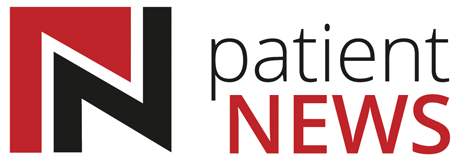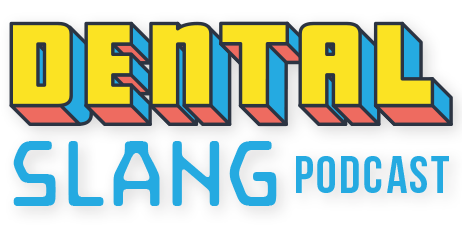12 Tips to Maximize Reimbursement from Dental Claims
Dental insurance isn’t the most satisfying aspect of life as a dentist. Therefore, it’s easy to blame insurance for our challenges, and granted, some grievances are valid. Yet, our office’s profitability and efficiency tend to suffer more from how we manage insurance than from the insurance itself. The reality is, we won’t likely change insurance business practices any time soon. Yet many of the challenges we encounter, such as claim denials, treatment declines and problem collections are quite easily solved with some simple changes to your office processes. This article will discuss 12 common challenges we face along with actionable solutions to streamline our daily operations, enhance the satisfaction of our patients while also boosting the profitability of our practice.
TIP #1: Prioritize Patient Needs Over Insurance Coverage
Your first reaction is likely, “but of course we care about what our patient needs!” Yet I’ve seen time and time again that the way most dental professionals discuss treatment and insurance with patients, the priority is placed too much on insurance. This results in patients who don’t get treatment done if the insurance doesn’t cover a service or has questionable policy benefits coverage or for patients who stop treatment due to reaching maximum (even though they could max out for multiple years). These are all concerns that relate more to how we communicate the need for treatment vs the problem with insurance coverage itself. So, the solution really requires a mindset shift. Think about everything you discuss with a patient and evaluate whether that is placing any emphasis on insurance being in the picture or not.
TIP #2: Recognize/Accept that Insurance Can’t Cover Everything
This involves yet another “mindset shift.” Dental insurance for the most part is one benefit among many that companies offer their employees. It is intended to encourage regular dental care and help offset some of the expenses. It has never been intended to pay for all expenses. Insurance policies typically do not cover cosmetic procedures, sedation, upgrades, or treatments considered out of the ordinary. Yet dental office staff and patients alike can get frustrated when insurance policies don’t cover ALL expenses. As a result, there is a tendency to lead with “well your insurance policy will only cover XYZ” … implying that the problem is with their insurance. Instead, reframe discussions to focus on their best oral health options and the value of treatment. And yes, their insurance will be a resource they can draw on as part of the payment equation. Just don’t let insurance dictate the treatment discussion.
TIP #3: Use Positive Language
A very important technique to coach your team is to speak positively about insurance (and everything else). Negative language and attitudes about insurance can discourage patients from proceeding with necessary treatment. It’s important to focus on the positive aspects of their insurance coverage, acknowledging any coverage the patient does have, regardless of how small. Maintaining a positive attitude and reframing discussions about their insurance can lead to better patient experiences and treatment acceptance outcomes.
TIP #4: Make Effective Use of Umbrella Plans
You can achieve higher insurance reimbursement rates and simplify claims processing through the smart use of insurance umbrella plans. When you contract directly with every insurance company, you’ll end up with lower reimbursement fees for your services. Instead, consider contracting with umbrella companies such as Carrington, Zelis, Connection, etc. who typically negotiate higher reimbursement fees and more favorable terms. By affiliating with umbrella plans, dentists can potentially see an increase of 20-50% in fee schedules compared to direct contracts and as a result benefit dental practices and improve profitability.
TIP #5: Understand the Distinction Between “Disallowed” & “Denied”
When you submit a dental claim, and the response you get is “Denied” … it simply means the insurance company will not reimburse for the services you rendered to the patient. You do have the right to appeal the decision, and with often more information / improved documentation it is possible to get that decision changed. But even if you are not successful, you simply charge the patient for the entire fee for your services. Ultimately, a denial should not affect the office at all.
Some Insurance Companies issue an alternate claim decision called “Disallowed.” In essence, they are saying not only will they not reimburse the claim, but the treatment itself should not have been done and therefore the patient is not responsible for payment either.
This practice is condemned by the ADA and is a violation of state board regulations. There is no legality to suggesting a dentist can’t charge for a legitimate service rendered. Treatments which are more likely to be “disallowed” include indirect pulp caps, gingivectomies and four quadrants of SRP on the same day. Therefore, consider how to handle “Disallowed” services, whether that means modifying treatment, sending more information, or just billing the patient and not sending a claim.
TIP #6: Scrutinize EOBs for Errors
EOBs are not always correct, due to outdated software and other factors. Dentists and their teams should carefully review EOBs to identify mistakes that may have been made, such as disallowed procedures or incorrect coding. Understanding common EOB error trends like downgrades, where insurance reimburses less than the agreed upon fee is crucial. Dentists should always collect the agreed-upon fee for services rendered, not the downgraded amount the claim may pay. Properly interpreting EOBs and addressing errors can help ensure accurate reimbursement and avoid financial discrepancies.
TIP #7: Submit Adequate Documentation
Inadequate documentation almost always leads to claim denials. If your denial rate appears high, the first place to look is the amount and quality of documentation your team is submitting. The number of denials is not related to whether your practice is in or out of network. The most common denial trends involve procedures like buildups and crowns or scaling and root planing. By improving your documentation practices, you’ll see greater and more accurate claims paid and fewer cases denied. This can be achieved through detailed records, clear photos, and thorough explanations of the patient’s condition and treatment rationale.
TIP #8: Use Correct Claim Codes
No question, claim codes can be confusing at times. However, learning to use the right codes in all situations to communicate with insurance companies serves to improve your claim payment rate as well as avoid fraud. When the dentist and team become familiar with coding books like the ADA’s or “Coding with Confidence” and keep them up to date it can make a significant difference. One of the more often missed codes is D0180, yet when used appropriately can result in higher reimbursement results. Another misunderstood code is D9110, which is actually a palliative treatment code, not an exam code. D9110 should be filed with an additional exam code and x-ray (if taken). Improved understanding of coding nuances like these can help ensure accurate billing and reimbursement. And effective use of internal codes for services not covered by insurance or described by the ADA code set are also essential for billing patients appropriately for those services rendered.
TIP #9: Charge for Upgrades to Basic Services
Insurance policies typically cover basic treatments and services but may not include premium options. For instance, if a patient wants laser periodontal therapy or Invisalign instead of traditional braces, they are considered upgrades and come with additional fees. Being in-network doesn’t mean providing high-end care for a lower cost: it means offering clinically acceptable basic care at a discount price. Clinically acceptable treatment is the baseline, and anything provided above that such as cosmetic or lab upgrades should be provided at an extra charge. Utilizing upgrades can significantly impact your practices revenue while at the same time improving patient satisfaction by offering and providing better treatment options. Upgrades are allowed and often specifically described in dental contracts.
TIP #10: Read Your Insurance Contracts Carefully
Not the most interesting read for sure, and yet many myths and misunderstandings arise across the industry because many don’t take the time to really read the contracts they are signing up for. As a prime example, most contracts do not require filing claims for all services. Many of the newer Delta Dental contracts explicitly state that providers are not required to submit claims for non-covered services. It makes sense though doesn’t it … why would an insurance company want extra paperwork to process when they have no intention of approving a claim for that service! Understanding contract terms can prevent unnecessary paperwork and streamline the billing process, ultimately benefiting the practice and patient satisfaction.
TIP #11: Keep Up to Date with Your State’s Laws and Rules
Many states have legislation regarding non-covered services, which determines whether patients pay the full fee or a discounted rate. Understanding your state’s specific laws, particularly around non-covered services as well as assignment of benefit laws and recoupment laws can significantly impact practice revenue and prevent unnecessary write-offs or discounts. State law resources are available to help you here on the Dental Insurance Guy website.
TIP #12: Only Call the Insurance Company for Benefit/Claim Related Questions
When working with your dental claims, there are certainly times when calling the insurance carrier makes sense. Your predominant reason to contact them is for eligibility verification and breakdown of benefits. However, for most other issues that could arise, contacting the insurance company is not an efficient or effective strategy … and could waste time on the part of your office. For example, if you find there has been an overpayment on a claim … most insurance companies won’t rectify an overpayment until they identify the mistake themselves. So, it is a waste of your time to contact them by phone. Trust that they will discover the error in time and rectify it. In addition, it is not really prudent to seek answers to contract or legal questions from insurance representatives, as they often provide inaccurate information due to not being attorneys or versed in all state laws or even the contracts you signed. It’s essential to seek out the truth by referring to state laws, insurance contracts or other reliable sources to optimize billing processes and ensure fair compensation for services rendered.
For further insights and information about these TIPS, watch the full member-only office hour session dedicated to this topic and earn AGD Pace CE credit.
Dental Insurance Myth-Busting
Dental insurance is complex and has generated multiple myths over the years. This course will uncover the truth behind these common myths so that you can better understand the dental insurance arena.
Take this free course
Learn More




